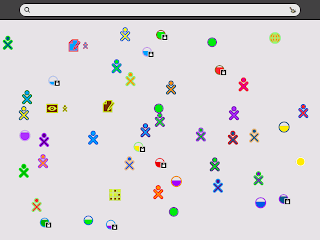Mining irony for media paychecks -- hyperlocal portals, niche news and non-profit patrons
When NPR senior correspondent Ketzel Levine got turned down for travel expense money for her series on American Moxie: How We Get By, it was a hint of what was about to come: layoffs at NPR that included her. (More here)
The great irony "Moxie" was about linking together stories of folks affected by the economic crisis, so Levine's own experience became the closing episode. Never reluctant to get her hands dirty, she has launched a new blog -- and a small-group botanical trip to Turkey... "OK, so maybe I feel a little betrayed," she said on the blog. "But when the company you love finds itself operating at a 23 million dollar deficit, come on, something's got to give."
Ironically, NPR's patronage/contribution model is one of the hopes we keep mentioning to journalism students as the old advertising-supported-mass-media model fades, especially as a way to support public interest journalism.
For more examples, Mark Glaser's MediaShift blog at PBS offers a guide to Alternative Business Models for Newspapers:
"It's easy to see the problems plaguing the business of daily newspapers in America. The Tribune Co. filed for Chapter 11 bankruptcy. The Christian Science Monitor said it would publish weekly in print instead of daily. Detroit newspapers announced they would be cutting home delivery to three days per week. Layoffs are rampant and newspaper company stocks are down in the dumps.
"What's difficult is finding solutions to these business problems."
Elsewhere, back on NPR, reporter Alex Cohn explored new media entrepreneurship in an interview with dean of the UC Berkeley School of Journalism Neil Henry, author of the book American Carnival: Journalism under Siege in an Age of New Media.
Note: After writing all of this, I went back to double-check the reference to Ketzel's travel expense request at NPR and couldn't find it. Was it only in the broadcast audio? If you notice the source, add it as a comment here. Speaking of comments, they're also talking about the New York Times story about Ketzel Levine at Huffington Post, with more criticism of NPR for being too "soft news"; perhaps there's more irony in Ketzel's departure coming during a series on the economy, when she's been better known for covering arts, sports, plants and the environment.
Additional links:
PBS TV interview with Ellen Weiss, NPR's senior vice president for news






